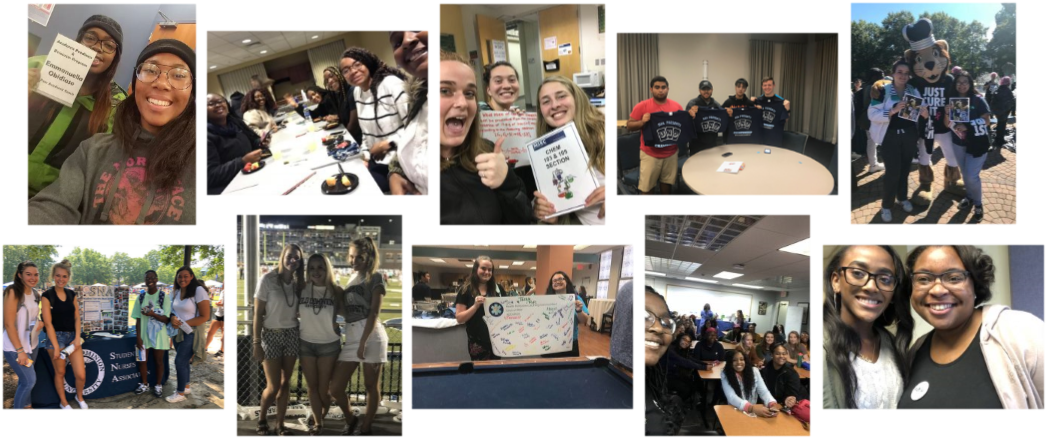So your advisor told you to get involved with a study group. Sounds easy, right? Meet with a group of people + study = make good grades and get into your program. But how do you get started? For the student who has never participated in a study group, or has suffered through being involved in an ineffective one, here are some guidelines for forming an effective study group.
WHY STUDY IN GROUPS? PEOPLE HATE WORKING IN GROUPS.
Do you ever study by yourself, get stuck on a problem and can’t figure out where you are going wrong?
As a study tool, you want your study group to provide a place to fill in any gaps in your knowledge. It doesn’t matter how much time you spend studying, if you don’t use your resources (in this case, friends/classmates) you will likely continue to make the same mistakes. However, if you study with other people, your error might be obvious to another student who can help you to better understand the content.
In solo study, you do not have the opportunity to demonstrate your knowledge of the course material (except maybe to your wall or your cat). One of the most overlooked aspects of learning is teaching. Many times, teaching others can be the most effective way of learning the material even better yourself. If you can explain course material to another person, you will be better able to explain that same content on a test or exam.
Great. You get it. Study groups are wonderful for a variety of reason. Now how do you get started?
ESTABLISHING A STUDY GROUP:
To paraphrase an old saying, the path to ruin is paved with good intentions, and so it is with study groups. You may have great ideas, hopes and aspirations for your study group, but if you don’t set guidelines and goals for the group, you may find yourself a study group of one after a few weeks. Or, even worse, you might be wasting your time because your study group is ineffective. Here are some ideas on how to establish an effective study group:
- Be intentional. Think carefully about who you include in your study group. Do not just assume that your set of social friends will make a great study group. Seek out other students who have similar academic goals and the same level of commitment to their studies. Look for people who attend class regularly, stay awake while they are there, take notes, and participate.
- Size matters. Limit the participants to a handful of people. 3-5 generally works best. If you have more people interested in participating, split into two smaller groups and meet as a larger group right before an exam.
- Be consistent. As best as you can it is ideal to meet in one location, at the same time each week for a set amount of time. Try to register early for a study room in the library for the duration of the semester so that the group can meet reliably without weekly emails of location changes for your group. You can reserve a room online here: http://www.odu.edu/learningcommons/
HOW TO GET THE MOST OUT OF YOUR STUDY GROUP:
- Set ground rules. As a group you should establish basic expectations that each group member agrees to meet. Then, determine what will happen if a group member does not keep up their end of the bargain.
- Be prepared. Every group member should be expected to read the assigned reading before meeting, bring their notes from class, bring a list of questions to review, attend meetings regularly, communicate with other group members if they are unable to attend, etc.
- Have a plan. Limit your group meeting to 2-3 hours per session. And plan to take breaks. The average person’s attention span isn’t very long. Also, make a plan for the next session. What do you expect everyone to accomplish before the next time you meet?
NOW LET’S RECAP:
Be clear in what you want the study group to accomplish, be purposeful in who you include in it, and make sure everyone is on the same page and has agreed to contribute so there is not a feeling of members coasting on the work of others. With intentional planning you can make the most of your study group and hopefully achieve a better grade on your next test and improve or maintain your overall GPA. Study groups are an effective tool if you know how and when to utilize them.
Feel free to add your thoughts about this post in the comments section as well as on our Facebook page. We want to know what works for you so we can learn your secrets to success, and hopefully pass on some of your tips to help other students.
*Adapted from Gavilan College tutoring documents: http://www.gavilan.edu/tutor/documents/StudyGroupsandCollegeSuccess_001.pdf







Pingback: Top Myths and Tips of Good Time Management | The Script